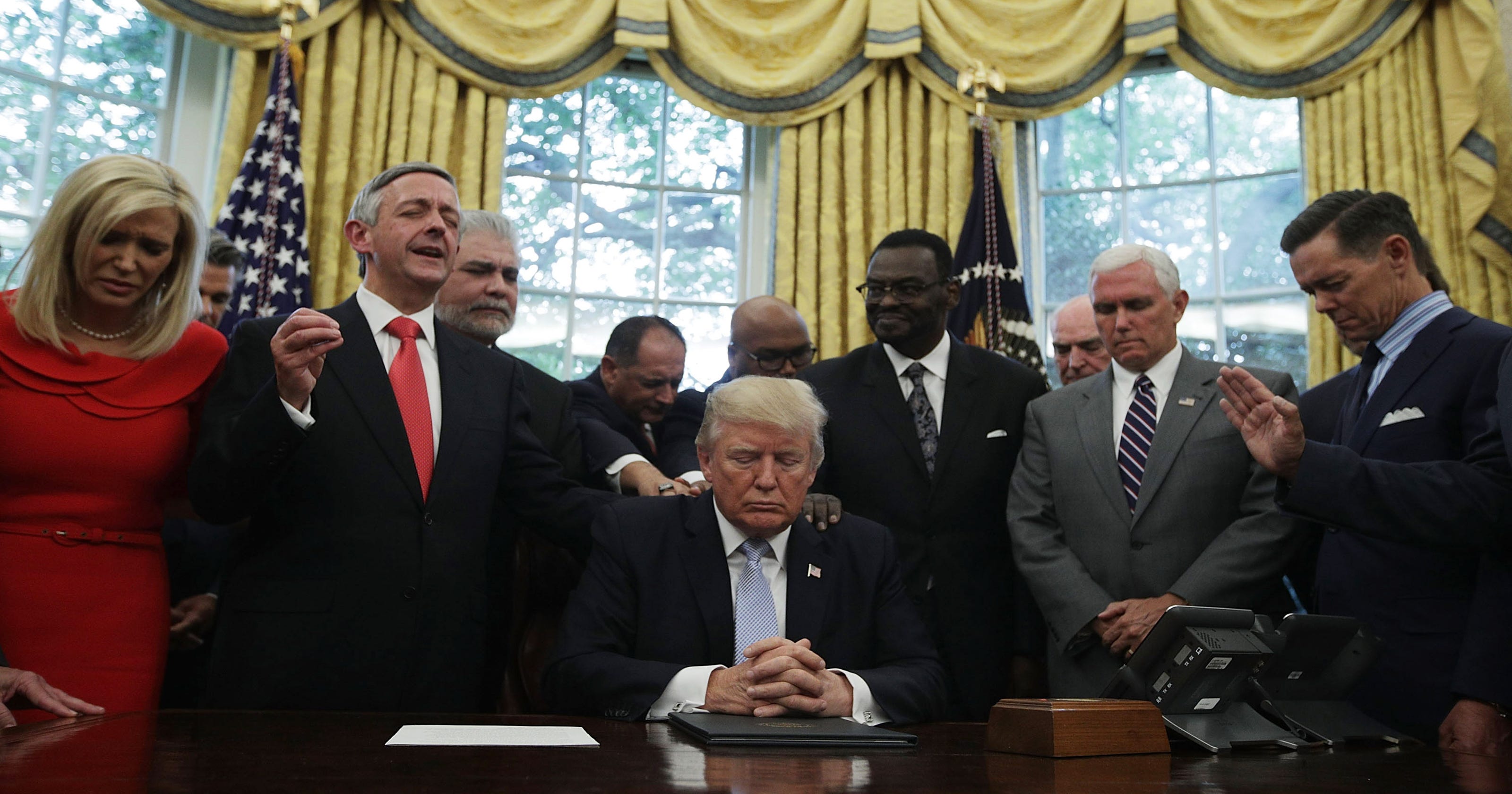Pre-Trump>
IRS Reminds Charities and Churches of Political Activity Ban | Internal Revenue Service
Post-Trump>
Trump signs order seeking to allow churches to engage in more political activity

IR-2007-190, Nov. 19, 2007
WASHINGTON — The Internal Revenue Service today reminded section 501(c)(3) organizations, including charities and churches that federal law prohibits them from becoming directly or indirectly involved in campaigns of political candidates.
IRS Reminds Charities and Churches of Political Activity Ban | Internal Revenue Service
Post-Trump>
Trump signs order seeking to allow churches to engage in more political activity
President Trump on Thursday signed an executive order aimed at making it easier for churches to participate in politics,






